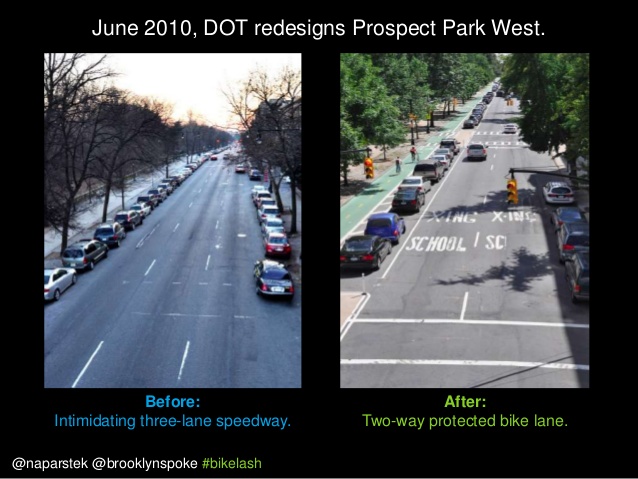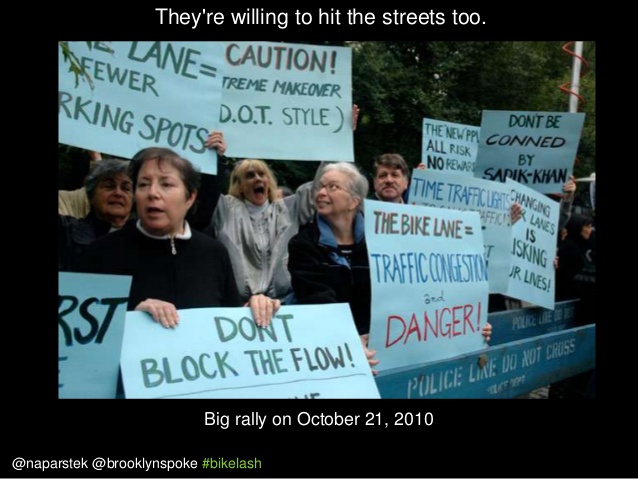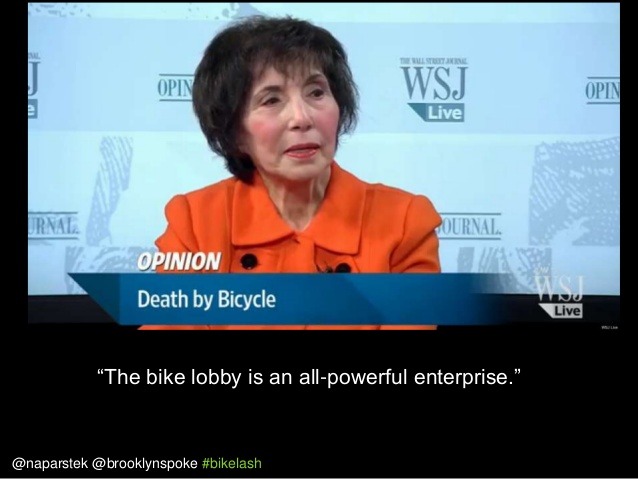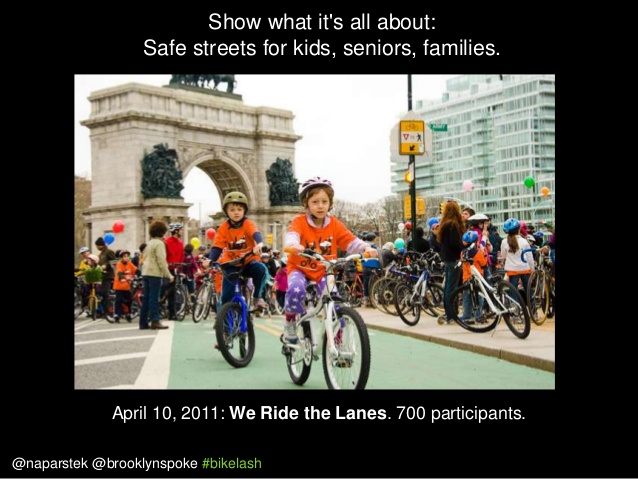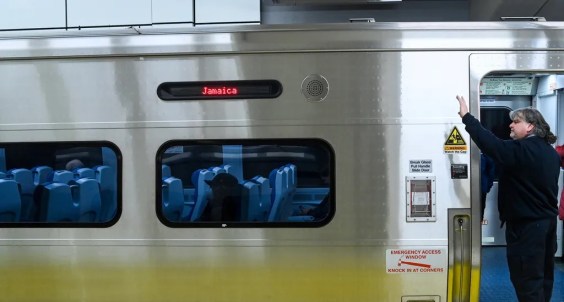With a cry of “Code Red Bikelash! Code Red Bikelash!”, “doctors” Aaron Naparstek (founding editor of Streetsblog) and Doug Gordon (blogger at BrooklynSpoke) dashed into the most fun panel the National Bike Summit has probably ever seen.
In their presentation, “Moving Beyond the Bikelash” -- a play on the overall Summit theme of “Moving Beyond Gridlock” -- the duo outlined symptoms and treatment for a bad case of bikelash, such as the one that plagued New York in 2010 and 2011 after the Prospect Park West bike lane was implemented.
In that case, bikelashers started with a Facebook page, then retained pro-bono legal representation, then started holding protests (with every hand-lettered sign in suspiciously similar handwriting), and finally sued to stop the lane.
The whole time they were saying they like bikes (always followed with a predictable “but…”), that they too used to ride (in their carefree and foolish youth), and that they were just concerned for cyclists’ safety (and where they were going to park their cars). (See a brilliant parsing of the anti-bike argument in this New York Times blog post by Adam Sternbergh.)
And then some of them, like Bikelash Propagandist-in-Chief Marcia Kramer, a CBS2 reporter, were just plain loony-tunes, fear-mongering about ludicrous things like a terrorist potentially riding on the Second Avenue bike lane in front of the Israeli consulate. “I wanted to do a suicide bombing at the Israeli consulate, but now I can’t because it’s too dangerous!” joked Naparstek.
And then there was the priceless Dorothy Rabinowitz rant about the all-powerful bicycle lobby and totalitarian Mayor Mike Bloomberg “begriming” New York City with blue Citi Bikes. (But you can’t blame her, she represents “the majority of the people.”)
Unsuspecting citizens would find themselves inserted into reporters' anti-bike narratives. When the New York Post used a photo of an older woman walking her dog to symbolize the scourge of Citi Bike -- minorly inconvenienced as she was by having to walk around a brand-new bike-share dock -- “your opponent is not that woman,” Gordon asserted.
“She has a legitimate concern," he said. "She’s never seen something like this. She doesn’t know what it is. To trash her on the internet or anything like that is just mean. It doesn’t help. Your opponent, so to speak, is the media that’s pushing these stories forward.”
That started the “treatment” portion of Gordon and Naparstek’s discussion of the bikelash epidemic. Though you may think yelling back would cure what ails you, shouting is actually contraindicated. Gordon, a comedian himself, said he’s inspired by improv, which requires actors to keep it together in the face of increasingly ridiculous situations.
Taking the high road is probably a good prescription for any protest movement. Be the face of reason while your opponents are screeching and tearing their hair out. Bike advocates especially need to show they’re just ordinary people who want to get where they’re going safely.
When it came to Prospect Park West, the way the bike community responded was not to get in the protesters’ faces -- it was to hold a short “We Ride the Lanes” ride with kids.
At the systemic level, the best treatment for a bikelash is to have a strong and healthy local bike advocacy organization and to get lots of people out to community meetings. And “you have to have your own media,” said Naparstek.
“If you don’t have a Streetsblog in your city you should get the equivalent of a Streetsblog,” Gordon added.
You can check against the indicators to see if your city has bikelash -- and what to do about it -- by catching the Powerpoint Cliffs Notes of their presentation.
